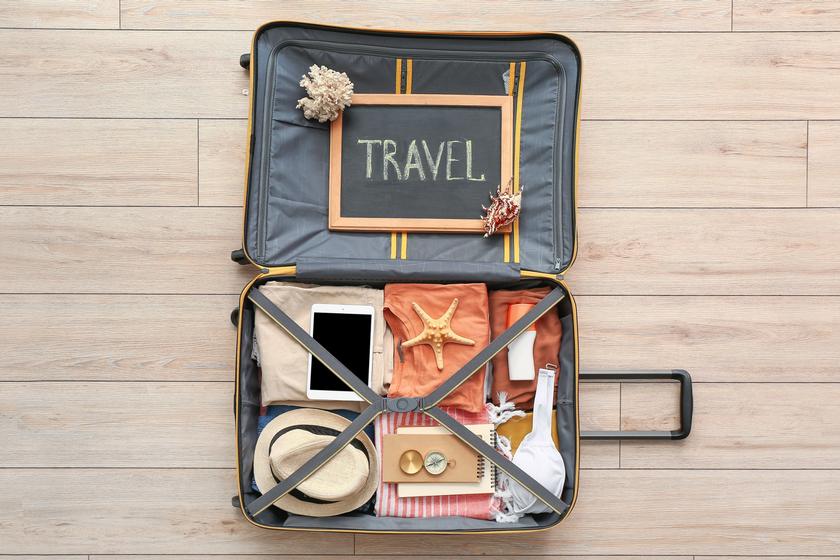A Doctor's Guide to Prepping for Long Distance Travel

There’s never a good time to fall ill, but there are certain circumstances when being sick can be worse than usual.
Traveling is a good example. When you’ve saved and planned for a trip, you want to savor it and enjoy every minute. You don’t want to miss beautiful sights or a packed itinerary due to unexpected illness.
Take important steps to keep you and your family well on the road—especially if you’re traveling abroad or on an extended trip. Start with these tips from Dr. Nabeel Nazir, DO, family medicine physician at Memorial Hermann Convenient Care Center in Greater Heights.
Before Your Trip
Check Online. The U.S. Centers for Disease Control and Prevention and World Health Organization are good resources to check before going abroad. “The CDC should be first on your list because it offers advisories that are especially helpful when traveling to countries endemic to Zika, West Nile, diphtheria, yellow fever, typhoid or malaria,” Dr. Nazir says.
Get Required Shots. At least one month before your departure, see your primary care doctor or a travel medicine specialist to get any destination-specific vaccinations or prescribed medicine. Some African countries bar entry without an International Certificate of Vaccination or Prophylaxis, also known as a yellow card.
“Doctors can prescribe prophylactic medicine against some diseases, such as malaria,” Dr. Nazir says.
Some medications may need to be taken before you travel.
Safety. Also review the U.S. Department of State website for advisories about crime and other safety issues abroad—even in countries to which you’ve traveled previously.
Register with the Department of State’s Smart Traveler Enrollment Program (STEP) and you’ll be alerted to safety risks at your destination. Also, STEP means you and your family can keep connected via the closest U.S. embassy or consulate should there be a natural disaster or medical crisis at your destination or at home.
Before Booking a Cruise. Check out the CDC’s Vessel Sanitation Program for details of norovirus and other gastrointestinal outbreaks, in particular on cruise lines and ships.
Existing Health Concerns. See your doctor in advance if you have diabetes, hypertension or other chronic conditions to ensure they’re well controlled, Dr. Nazir says. “Also touch base to make sure your flu, tetanus and COVID-19 vaccines are up to date.”
It’s vital to have enough medicine with you, so make sure you have an adequate supply of medicine for a lengthy trip, he says. Sometimes getting extra medication might take prior health insurance approval. “Be cautious about buying medicine abroad, as some countries could sell counterfeit or expired medicine,” Dr. Nazir says.
Prior to your trip, check with your health care insurance provider about how far your coverage extends. You may need to buy two types of coverage, including medical care and emergency evacuation insurance, should you be hospitalized and need to be evacuated.
Dr. Nazir recommends reviewing options at Squaremouth.com, HTH Worldwide and Travelex.
What to Pack
Do Your Research. Check your airline’s website to determine its size and weight limits for carry-on luggage. This is important if you have essential medicines, which should always be with you onboard.
“It’s recommended you keep prescription drugs in their original bottles, with the original labels, and in your carry-on bag, in case your baggage is delayed so you have your medication with you.” Dr. Nazir says.
Plan Ahead. Pack plenty of any essential medicine so you don’t run out if your trip is prolonged by bad weather, flight cancellations or other reasons.
Bring COVID-19 test kits with you, though they won’t be needed to board your flight and you’re no longer required to be tested before reentering the U.S. “COVID-19 testing can be very limited in other countries,” Dr. Nazir says.
You should have a first aid kit, with antiseptic wipes, butterfly bandages, sterile dressings and topical adhesive. Additionally, bring any OTC meds you might need, including acetaminophen or ibuprofen for pain, DayQuil® or NyQuil® for cold and flu symptoms, and antihistamines for itching and sneezing. Also consider packing saline spray (to irrigate eyes and wounds), burn gel, water purification tablets, hydrocortisone cream for itching and inflammation, a tongue depressor (to use as a finger splint) and tools to remove splinters and ticks.
Diabetics should bring glucose packets or hard candies in case their blood sugar gets low. If you have a food allergy, pack epinephrine pens in your carry-on bag. Your doctor may prescribe nitroglycerin tabs if you have heart ailments.
If you’re going on boats or a cruise, you can get motion sickness. Those prone to vertigo or motion sickness should stay well hydrated and avoid alcohol. Your doctor may prescribe skin patches that last up to three days. Dramamine® or Bonine® are available over the counter.
You may consider packing DDT insect spray in tropical areas—especially those with higher incidence of West Nile, malaria or the Zika virus.
While En Route: Planes, Trains, Ships, Buses
Mask Up. “Travel often involves close proximity to others who might have contagious diseases and might not be masked,” Dr. Nazir says. “That includes boarding public transportation.”
Use hand sanitizer or antiseptic wipes and wash your hands frequently and thoroughly— especially after using the toilet, before eating or before brushing your teeth. Also disinfect thoroughly after touching high-contact surfaces such as elevator buttons, doorknobs and railings.
If you are pregnant or have had recent surgery, such as a disc, knee or hip replacement, speak to your doctor about any precautions you may need for lengthy flights.
Compression socks and walking about the cabin may be recommended to avoid blood clots known as deep vein thrombosis (DVT). Such clots can travel to the lungs, leading to sometimes fatal blockages called pulmonary embolisms.
Reduce Jet Lag. If possible, sleep while on overnight flights. Melatonin may help regulate your sleep cycle, as could curbing caffeine in the evening and beyond, and staying well hydrated.
General Safety
Prevent an Upset Stomach. “Water might not be safe to drink in Latin America, Asian countries or Africa,” Dr. Nazir says. Rely on prepackaged and sealed bottled water, including when you brush your teeth.
Be careful with street food, especially fish and meat to make sure they’re cooked well, he says. “Chances are it may not be properly cleaned or refrigerated. Also only eat fruits and vegetables if you’ve washed them with safe water or peeled them yourself.”
Your doctor may prescribe antibiotics to take if you develop travelers’ diarrhea. “Daily probiotics also may be helpful.” Look for probiotics containing bifidobacterium bifidum, lactobacillus acidophilus or saccharomyces boulardii.
Plan Ahead for Weather. As Houstonians, we’re pretty well acquainted with dealing with warm climates: Stay well hydrated, eat frequently and wear long sleeves and pants to avoid bug bites and sunburn. Also wear sunscreen of SPF 30.
Your doctor may suggest wearing a mask in countries with more pollution and higher population density. High altitudes, changes in air quality, and warm or cold temperatures may affect your health, so alert your doctor to your itinerary.
“Acute sickness can occur above 8,000 feet. Symptoms include headaches, nausea, vomiting or fatigue,” Dr. Nazir says. “It’s best to ascend slowly, stopping to rest at the first signs of altitude sickness. Your doctor may prescribe DIMOX or acetazolamide to be taken a day before ascending.”

















